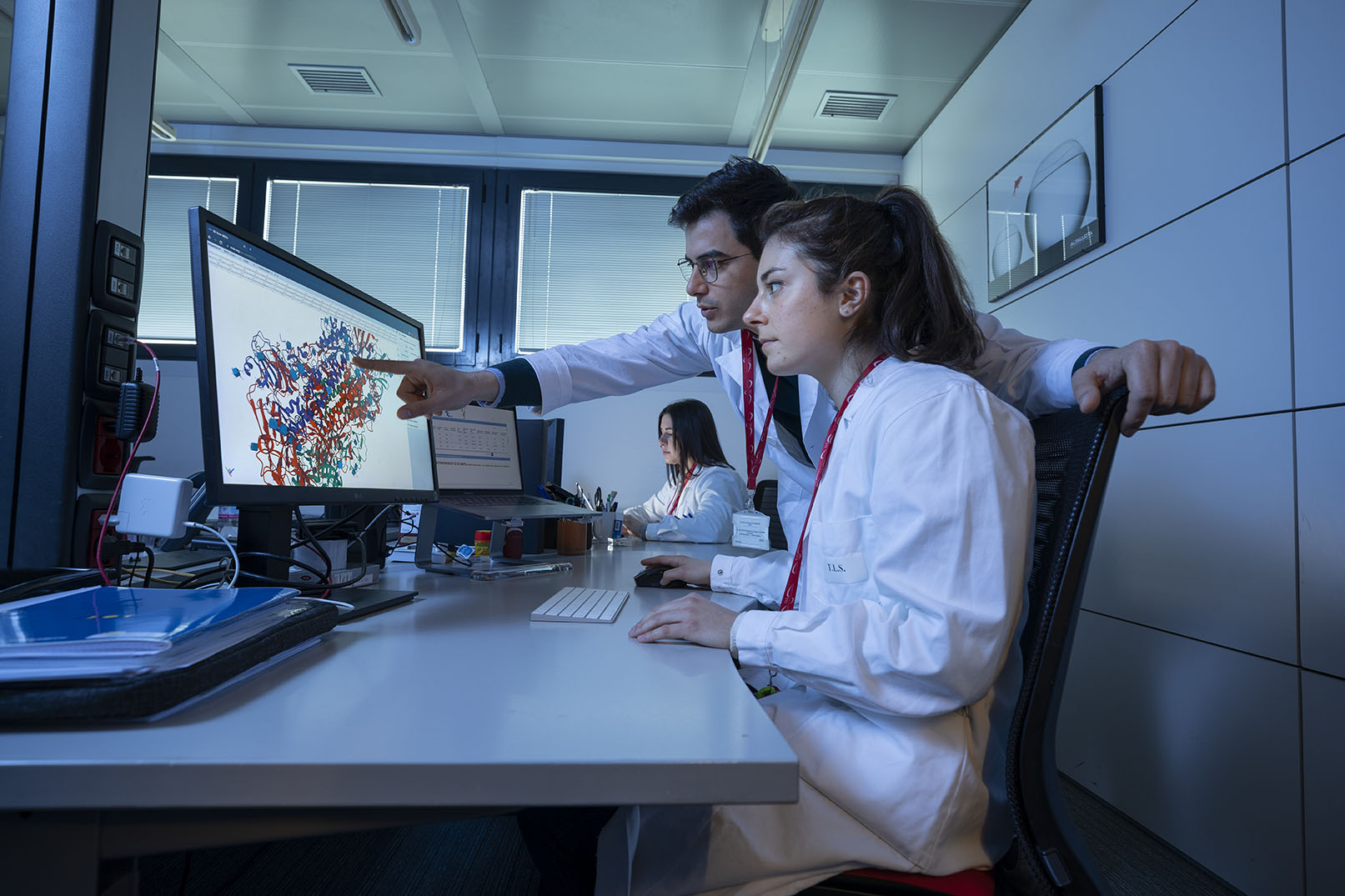In recent years, the increasing commitment of TLS to in-house research has produced a significant growth of the scientific contribution of the foundation’s researchers

MONOCLONAL ANTIBODY DISCOVERY (MAD) LAB
General Description
The MAD Lab research team at TLS Foundation started its activities in 2018 thanks to a 2.5 million euro ERC Advanced Grant for a research project focused on anti-microbial resistance. The team has quickly grown thanks to various funding sources received for tackling different health challenges (Shigella, Klebsiella pneumoniae and, more recently, coronavirus SARS-CoV-2). The MAD Lab has consolidated skills in the identification and characterization of monoclonal antibodies that can be tested in vitro against bacteria and viruses.
Research Activities
The Monoclonal Antibody Discovery (MAD) Lab is focused on different research projects:
- SARS-CoV-2 Project – The project aims at identifying human monoclonal antibodies (mAbs) capable of binding the Spike protein of SARS-CoV-2 wild type and of the recently emerged variants. Once identified, mAbs are tested for their ability to neutralise the authentic virus in vitro in a controlled environment (Biosafety Level 3, BSL3). The project started in March 2020 thanks to several funding sources (ERC Advanced Grant vAMRes; Malaria Fund; Ministero della Salute; Raccolta Fondi Coop, and more).
- ShiMabs Project – “Human monoclonal antibodies against Shigella (ShiMabs), for therapy and vaccine acceleration”, financed by Wellcome Trust and developed in partnership with GSK-GVGH, deals with the discovery of monoclonal antibodies against Shigella spp., a bacterium responsible for bowel infections, especially in children living in the poorest areas of the world. The Reverse Vaccinology 2.0 strategy has allowed the isolation of specific monoclonal antibodies against this bacterial species through the analysis of memory B cells collected from volunteers vaccinated with experimental Shigella vaccines.
- Neisseria gonorrhoeae Project – The goal of the project, financed by the ERC Advanced Grant vAMRes, consists in isolating human monoclonal antibodies against Neisseria gonorrhoeae from people vaccinated with Bexsero, the vaccine against meningococcal group B disease. The rationale behind this approach is the partial protection against gonorrhoea observed in a retrospective study in people vaccinated with Bexsero (Petousis-Harris et al., 2017). The study, conducted in partnership with GSK, includes the identification of the mAb antigens by using state-of-the-art biochemical technologies, confocal microscopy and structural biology.
- Klebsiella pneumoniae Project – The project, funded by Regione Toscana within the CReMeP (Centro Regionale per la Medicina di Precisione) program, aims at isolating human mAbs from patients who recovered from infections caused by the New Delhi metallo-beta-lactamase-producing (NDM) Klebsiella pneumoniae, a bacterium that is increasingly resistant to the available antibiotics and can cause nosocomial infections. Efficacy studies have been conducted on the three most potent antibodies to select the most promising monoclonal for the future clinical studies. The preclinical research will continue with the identification of the antigen recognised by the mAbs and their characterisation from a biochemical and biophysical point of view.
- mRNA Project – The project entitled “Development of extremely potent human mRNA-encoded monoclonal antibodies against viral and bacterial pathogens” integrates the mRNA technology – validated by the most recent SARS-CoV-2 vaccines – into the Reverse Vaccinology 2.0 approach. Research is funded by the Wellcome Leap R3 Programme “RNA Readiness + Response”.
- Monkeypox Project – The project “Isolation of human monoclonal antibodies against viruses of the poxviridae family for the development of new therapies and vaccines” started in collaboration with IRCCS Ospedale Sacro Cuore Don Calabria, ASST Fatebenefratelli Sacco, AOU Senese and AOUI Verona. In this study, the technological progress and the extensive experience of the MAD Lab will be exploited to clone B cells from donors recovering from the monkeypox infection or healthy donors vaccinated against smallpox, the reason being that the vaccination can guarantee 85% cross-protection against monkeypox. The final goal of the research is to identify mAbs against the monkeypox virus and other viruses of the Poxviridae family that can be used for therapeutic purposes and for detecting highly immunogenic antigens that would be impossible to detect with the traditional methods.
MAD Lab Coordinator and vAMRes Principal Investigator: Rino Rappuoli
Research Group:


